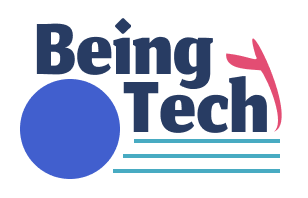What is AI
AI, or Artificial Intelligence, refers to the development and implementation of intelligent machines and computer systems that can perform tasks that typically require human intelligence. These tasks include learning, reasoning, problem-solving, perception, and language understanding. AI systems are designed to analyze large amounts of data, recognize patterns, and make decisions or predictions based on that information.
Advantages of AI:
Automation and Efficiency: AI can automate repetitive tasks, leading to increased efficiency and productivity. It can handle large volumes of data and perform complex calculations quickly and accurately.
Error Reduction: AI systems can minimize human errors by executing tasks with precision and consistency.
Decision Making: AI algorithms can analyze vast amounts of data, identify trends, and make data-driven decisions, often surpassing human capabilities in terms of speed and accuracy.
Handling Complexity: AI can handle complex tasks and processes that may be challenging for humans. It can process and interpret intricate data patterns and provide insights for various industries, such as finance, healthcare, and manufacturing.
Innovation and Exploration: AI enables the development of new technologies and the exploration of uncharted territories. It has the potential to drive significant advancements in fields like medicine, space exploration, and environmental sustainability.
Applications of AI:
Healthcare: AI can be used to analyze medical data, assist in diagnosing diseases, develop personalized treatment plans, and monitor patient health.
Finance: AI algorithms can analyze financial data, detect fraud, provide investment recommendations, and improve risk assessment.
Customer Service: AI-powered chatbots and virtual assistants can handle customer inquiries, provide support, and offer personalized recommendations.
Transportation: AI can optimize transportation routes, assist in autonomous vehicles, and improve traffic management systems.
Manufacturing: AI can automate production lines, monitor quality control, and predict maintenance needs, leading to increased efficiency and reduced costs.
Disadvantages of AI:
Job Displacement: The automation of tasks through AI can lead to job losses and changes in the job market. Certain roles may become obsolete as AI systems take over repetitive and manual tasks.
Lack of Human Judgment: AI systems lack human intuition and common sense, which can limit their decision-making abilities in complex and unpredictable situations.
Ethical Concerns: There are ethical considerations surrounding AI, such as privacy concerns, bias in algorithms, and the potential for misuse or weaponization of AI technology.
Reliance on Data: AI systems heavily rely on vast amounts of data to make accurate predictions and decisions. Insufficient or biased data can lead to flawed outcomes.
Initial Investment and Maintenance: Developing and implementing AI systems can be expensive, requiring significant investments in infrastructure, hardware, and skilled professionals. Additionally, maintaining and updating AI systems can be complex and costly.
It is important to note that while AI has various advantages and applications, it also poses certain challenges and considerations that need to be addressed

.png)